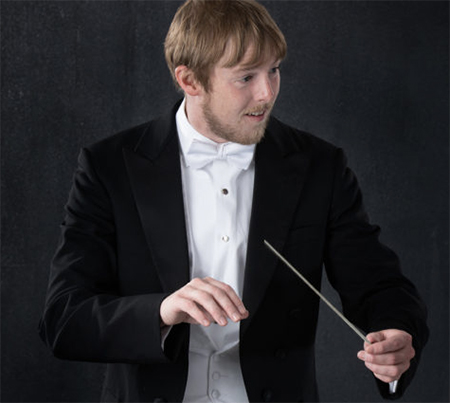by Tom Wachunas

His zestful attentiveness to the most subtle details of orchestral tone, texture, and tempo was riveting throughout the entire afternoon, beginning with a vivacious rendering of The Merry Wives of Windsor: Overture, by German composer Otto Nicolai. Much of the overture’s melodic content was taken from Act III of the 1849 opera based on the Shakespeare comedy, Falstaff. Merriment indeed, the orchestra was a rollicking embodiment of magic and mischief in a forest at moonrise, fully capturing the elfin sparkle, galloping pace, and intricate harmonic twists of the music.
For the following two works — Finlandia, by Jean Sibelius, and Crown Imperial (Coronation March), by William Walton — the orchestra was joined by 34 members of the Canton Youth Symphony Advanced Orchestra, which Jaroszewicz has directed since 2017.
This remarkably gifted group is comprised primarily of high school students from six counties, including Stark County. Throughout the brilliant lyricism and dramatic solemnity of Finlandia, and into the swelling grandiosity of Crown Imperial, both ensembles were bright, alert, and seamlessly blended to put forth a magnificent sonority. Excellence side-by-side with excellence. It was highly gratifying to see and hear Jaroszewicz’s passionate commitment to the CYSAO. These young artists are compelling evidence that the future of classical music, at least in these parts, is in good hands.

Even in the brief thunderstorm sequence, there was a palpable sensation of serene reverence for the rhythms and textures of nature. Beethoven called his symphony “…an expression of feelings rather than a painting in sound.” Accordingly, the masterful performance here was imbued with a gentle urgency as conductor and players united in a mutual probing of the music’s emotional identity. Not melodrama, but beautifully mellow.
Published on ClevelandClassical.com February 27, 2020.
Click here for a printable copy of this article


